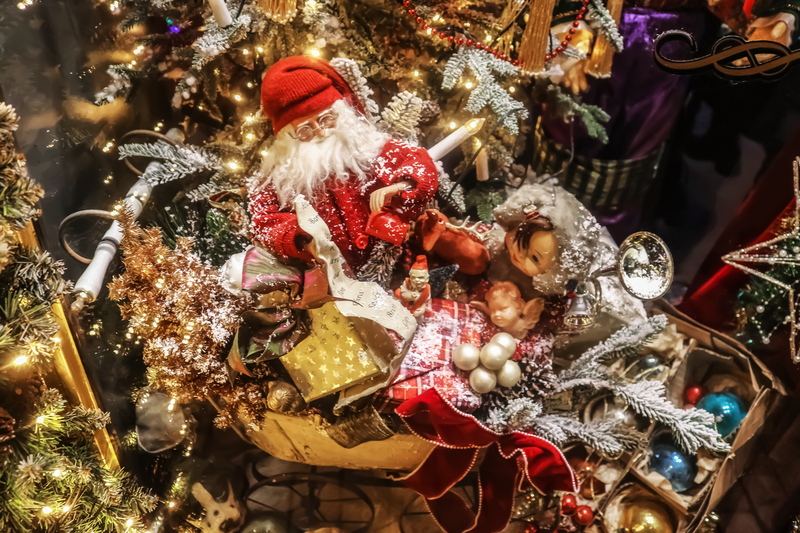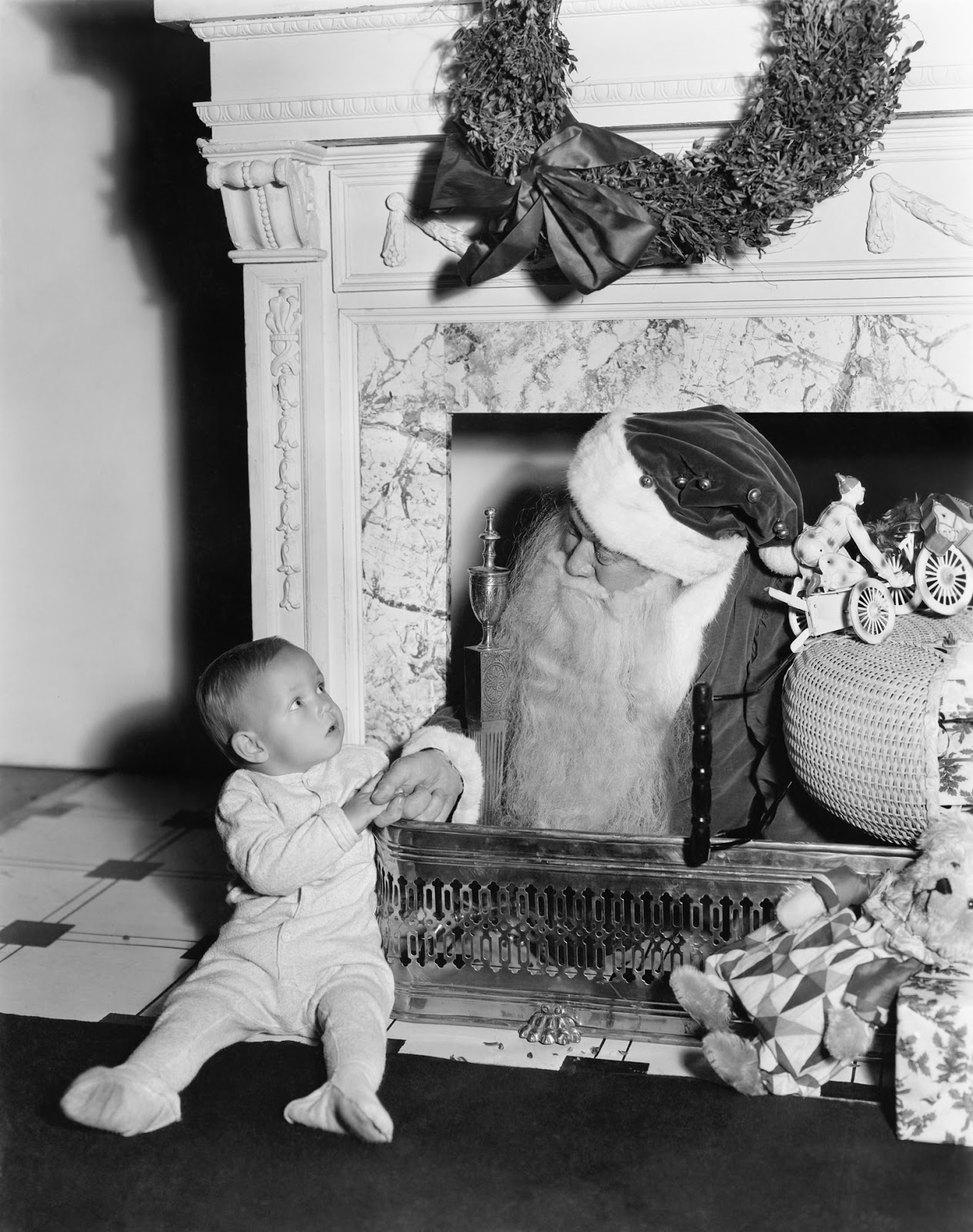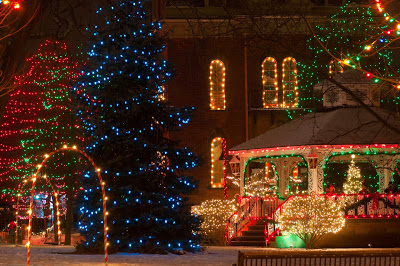It’s my annual posting of my summary of the History Channel’s Christmas Unwrapped: The History of Christmas. Part of our American Christmas tradition is for people to throw around the phrase “the true meaning of Christmas.” What that phrase usually refers to is an increased focus on Jesus/God and being loving towards each other. I maintain that Christmas has little to do with Jesus at all. The following historical facts are from the History Channel program, but the opinionated statements are mine.
The first Christians didn’t celebrate Jesus’ birth
Early Europeans observed a winter solstice celebration centuries before Jesus was even born. In Norse country it was called “Yule” and it lasted for as long as the enormous yule log took to burn, which was about twelve days. In preparation for the cold, dark season people would kill almost all their livestock since they couldn’t feed them through the winter. The feasting and general revelry that resulted became the annual Yule celebration.
In Rome, centuries before Jesus’ birth, the winter solstice marked the period known as Saturnalia. During this festival people drank, behaved outrageously and generally overturned the usual social order. While this was going on, the upper classes of Rome worshipped Mithras, the sun god, whose feast day was December 25th and who was believed to have been born in a field and worshipped by shepherds. Hmm…
Early Christians didn’t even celebrate Jesus’ birth, focusing on his resurrection (which makes a lot more sense to me), but by the fourth century the new Holy Roman Catholic Church needed to establish Jesus’ holy birth, so it began to put together the nativity story. It knew it would never manage to outlaw the pagan traditions already in place, so it appropriated them. That’s how December 25th became Jesus’ feast day and why his birth story includes shepherds, just like Mithras’.

In England during the middle ages, the pious went to church on December 25th for “Christ’s mass,” but for most of the population it was just a regular day. Most of those who did celebrate it made it a festival of drunkenness and sex that would look more to us like Mardi Gras or New Year’s Eve. It was a saturnalian free-for-all with little connection to Jesus except in name.
The U.S. Congress was in session on all Christmas days for its first 67 years
By the 17th century the Puritans had had enough of this sinful frivolity and they made attempts to outlaw Christmas in both England and the New World. Did you catch that? The Puritans wanted to outlaw it. Talk about a war on Christmas! Those devout people saw Christmas as a depraved tradition that had to be stopped. Also, when the United States were established in 1776, the early Americans wanted to rid themselves of all things English, including Christmas. The holiday was greatly downplayed for a long time, as evidenced by the U.S. Congress being in session on all Christmas Days for its first 67 years.
But eventually the new country needed culturally shared holidays, so Christmas was brought back. One new aspect of the American Christmas was how it addressed the growing class divide of the industrial U.S. In the early 1800’s the holiday became quite dangerous as working class people turned it into a time of violent payback for the increasing gap between the haves and the have-nots. In response, writers like Washington Irving and Charles Dickens created works of fiction that focused on a spirit of generosity and sharing wealth with the poor. These popular stories gave the upper classes guidance about what their responsibility was to those who had less and established giving as a central Christmas theme.
Americans set shopping as the central Christmas activity
The view of the family was also changing. Traditionally, the American family was supposed to discipline children and turn them into hard workers, but by the end of the 19th century the family was seen more as a nurturing body that protected childhood innocence. Christmas, with its emphasis on giving gifts, allowed people to pour attention on children without seeming to spoil them. The holiday became a celebration of children, honoring them with presents.
 The creation of the American version of Santa Claus in the mid-1800’s did a few things: it reinforced the idea that Christmas distributes wealth, it solidified the focus on children and it made gift-buying seem a little less commercial and more a family act of love and affection. How about that? Shopping became an expression of love and to this day it obliges parents to fulfill their children’s expectations and makes shopping the central activity of the Christmas season.
The creation of the American version of Santa Claus in the mid-1800’s did a few things: it reinforced the idea that Christmas distributes wealth, it solidified the focus on children and it made gift-buying seem a little less commercial and more a family act of love and affection. How about that? Shopping became an expression of love and to this day it obliges parents to fulfill their children’s expectations and makes shopping the central activity of the Christmas season.
American Protestant churches ignored Christmas for decades
By the late 1800’s Christmas was just about everywhere in the U.S, except in church. That’s because celebrating Jesus’ birth was part of the Catholic tradition, but not the Protestant one. It took a long time for Protestant churches to pay any attention to Christmas. For decades they stayed closed on December 25th until their parishioners made clear that they wanted services on that day.
So it’s not true that Jesus’ birth is the original reason we have Christmas. December 25th was part of a pagan festival that morphed into a holiday of gift-giving that American churches didn’t want anything to do with until almost the 20th century. There was no golden age during which most people observed Christmas primarily as a holy day. Sorry Charlie Brown, but Snoopy’s right: Christmas is as much about the big decorated tree as it is about the manger.

If the day were really just about Jesus, it wouldn’t occupy public space as it does. Strictly religious holy days tend to be observed only by those who practice that faith. Our American grand scale yuletide traditions — big decorations, big eating, big shopping — tangentially recognize the religious significance of the day, but they sure don’t engage with it.
The History Channel’s program ends with the observation that only children understand what Christmas is really about: joy, celebration and gifts. I agree that if your family celebrated Christmas, it can take you back to a time of carefree enjoyment of the h0liday, before you had to step into the adult role of providing fun for others (such as your children).
Of course, there are also plenty of people who had childhoods where Christmas only provided an opportunity for bigger disappointment and disenchantment than the rest of the year. For them Christmas just sucks. I also think the child-focus of the holiday is why Christmas becomes ever more dim and disappointing to us adults: the essence of this holiday isn’t about us.
So there it is. You can believe Christmas is really about God or being nice to others or whatever, but historically it’s not. Whether you spend the holiday in church or eating/drinking more than usual or having cheap sex, you’re right in the spirit. Please use these facts to argue (just for fun and sport) with anyone who tells you that Christmas used to be about Jesus or that it is supposed to be about Jesus. Because Christmas is really kind of about anything and everything you want it to be about.





0 Comments